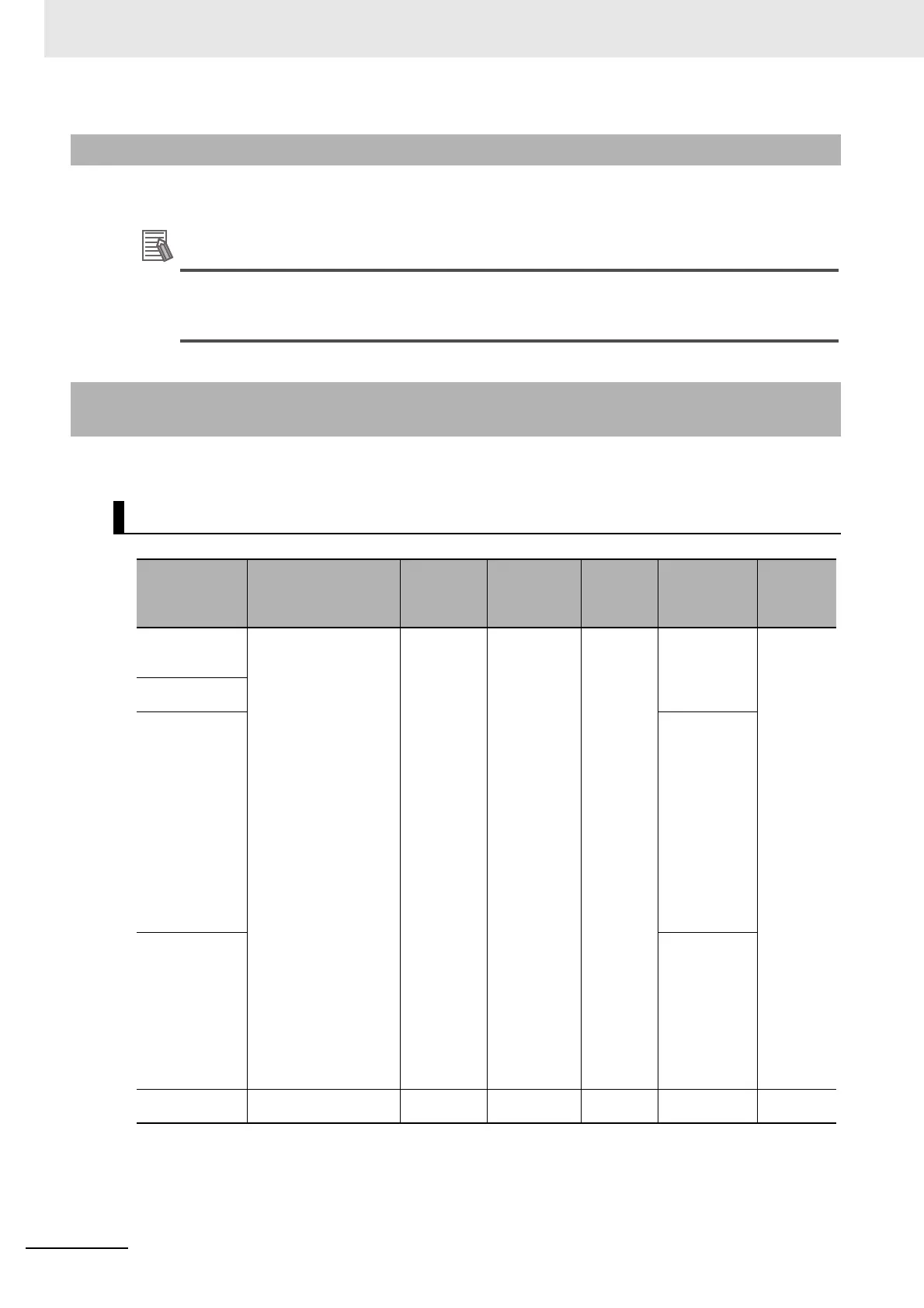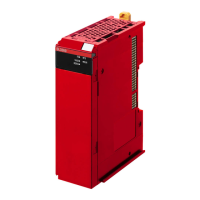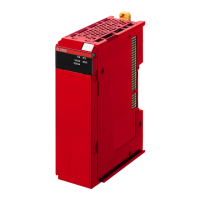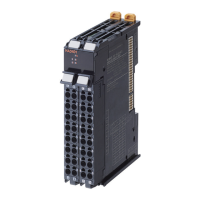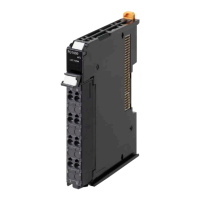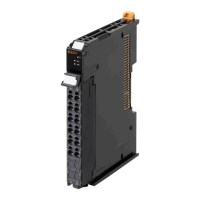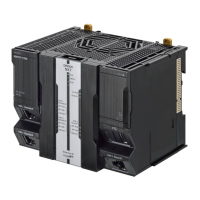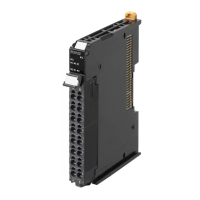7 Programming
7 - 18
NX-series Safety Control Unit User’s Manual (Z930)
Function block instances are added to and displayed in the local variable table or the global variable
table as data types.
A function block instance is treated as a local variable of the program in which the instance is
created. As such, the instance is added to and displayed in the local variable table of the pro-
gram.
The following table lists the restrictions on variable names and other safety program-related names.
7-2-7 Function Block Instances
7-2-8 Restrictions on Variable Names and Other Safety
Program-related Names
Character Restrictions
Safety pro-
gram-related
name
Applicable characters
Reserved
words
Multibyte
character
compatibility
Case sen-
sitivity
Maximum
size
*1
(not
including
NULL)
*1. The individual restrictions are as listed in the table. The actual upper limits depend on the overall
program capacity and memory capacity for variables.
Character
encoding
Variable name
(including POU
instance names)
Usable characters
• 0 to 9, A to Z, and a to
z.
• _ (underlines)
Refer to Reserved Words
below for a list of the
reserved words.
Characters that cannot
be used together
• A text string that starts
with a number (0 to 9)
• A text string that starts
in an underline (_)
character
• A text string that con-
tains more than one
underline (_) character
• A text string that ends
in an underline (_)
character
• Identifiers formed from
a string of characters
that is prefixed or suf-
fixed with one or more
expansion characters
or spaces.
Refer to
Reserved
Words below.
Not supported. Not case
sensitive.
127 bytes ASCII
POU definition
names
Full path of vari-
able names
(Example: This
includes the num-
ber of characters
for the instance
name and period,
which is Instance-
Name.Output-
VariableName
when accessing
the output vari-
able of a function
block.)
511 bytes
Device names 127 bytes
Variable com-
ments
None Supported. --- 127 bytes UTF-8

